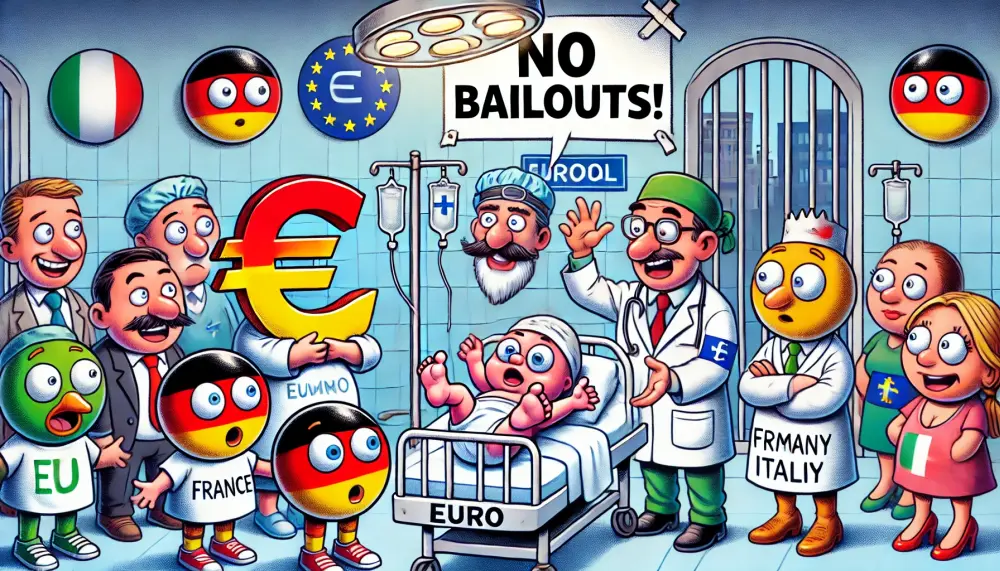Reading Time : 2 minutes Switzerland has proposed strict capital rules targeting UBS, including $26B in extra capital and full foreign subsidiary coverage. UBS calls it extreme, but markets stayed calm.
Reading Time : 2 minutesThe Euro’s creation in 1999 introduced a new era of economic integration in Europe, but it came with the “no-bailout” clause. This rule, designed to ensure fiscal responsibility, prevented Eurozone countries from bailing out one another. However, the 2008 financial crisis tested this principle, leading to emergency financial support despite the clause. The ongoing debate over its relevance continues to shape the Eurozone’s economic policies. Understanding the “no-bailout” clause is key to grasping the complexities of European financial governance.
Reading Time : 2 minutesThe shadow banking system operates outside traditional banking regulations, involving institutions like hedge funds and private equity firms. While these entities play a vital role in providing credit and investment, their lack of regulation contributes to financial instability. During the 2008 crisis, shadow banks were key players in amplifying economic risks. Governments now face the challenge of monitoring this sector without stifling its benefits. Understanding shadow banking is crucial for maintaining financial stability in an ever-evolving economy.
Reading Time : 2 minutesThe July 19, 2024 global tech outage underscored the vulnerabilities of modern digital infrastructure, impacting airlines, banks, hospitals, and media outlets worldwide. The disruption, caused by a faulty software update in Microsoft systems, grounded flights, delayed financial transactions, and disabled automated services, necessitating manual interventions in many sectors. The incident revealed the interconnected nature of global technology systems and their susceptibility to widespread disruptions from single points of failure. While cybersecurity firm CrowdStrike swiftly addressed the issue, the event highlighted the critical need for robust contingency plans and the importance of diversifying technological dependencies to mitigate future risks
Reading Time : 2 minutesInter-bank money transfers are a critical component of the global financial system, enabling banks to settle transactions and manage liquidity efficiently. However,
Read More
Reading Time : 3 minutesIn a monumental financial move, Capital One has unveiled plans to acquire Discover Financial Services in a staggering $35.3 billion deal, marking
Read More
Reading Time : 3 minutesIn the aftermath of a recent banking crisis, a daunting challenge has emerged, gripping global financial institutions in the throes of escalating
Read More
Reading Time : 3 minutesGoldman Sachs, a global financial powerhouse, stands as a prominent player in investment banking and financial services. Renowned for its strategic prowess,
Read More








